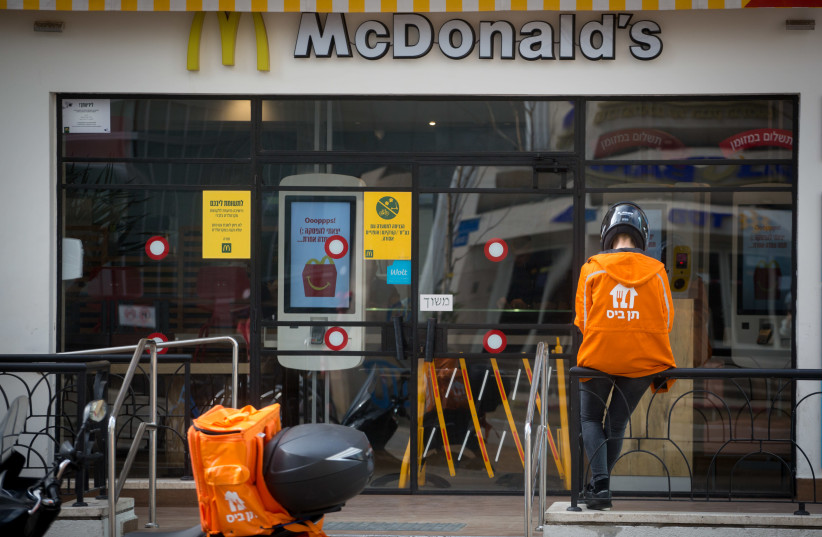Prime Minister Benjamin Netanyahu played into the hands of Histadrut chair Arnon Bar-David at the end of March when judicial reform protesters decided to go on strike.
The latter repelled all pressures on him to shut down the economy until that strike.
Bar-David at first refused to participate in the protests, but he broke after Netanyahu fired Defense Minister Yoav Gallant and ignited the atomic reactor of the mass protests.
From the moment he decided to shut down the economy via mass strikes, Bar-David became the main protestor and was embraced by the rest of them. Netanyahu waited to announce he would stop pushing the judicial reform measures until the following day in order to organize the Right and create a balance between the protesters against the reform and the right-wing people who support it.
Why did so many Israeli businesses join the strike?
The Histadrut's announcement was unprecedentedly joined by the banks, the airport authority, marketing chains, shopping centers, private companies and more. Managers of companies such as Teva, Discount and others sent letters to employees explaining the essence of democracy and their fears of it being harmed by the legislation.
Of all the strikes held in the economy against the backdrop of the legal reform, one, in particular, caught my eye: that of McDonald's Israel.
McDonald's Israel has never declared a strike and as far as I know, no McDonald's anywhere worldwide has gone on strike.

This is the place to mention that the chain's franchise is owned by Omri Padan, a veteran of the Sayeret Matkal special intelligence unit who served on Avi Dichter's team; Dichter was the candidate for defense minister if Gallant had been fired.
The strike was also attended, in an unprecedented manner, by all the companies owned by the Fimi investment fund controlled by Yishai Davidi. Fimi employs 55,000 people in 50 factories in Israel and around the world. Davidi also served in Sayeret Matkal and worked behind the scenes to reach understanding regarding the judicial reform.
"Israel is facing fateful days," he said at the time. "I call for the legislation to be stopped immediately, for Gallant to be reinstated and the country restored to sanity."
Padan, Davidi and others are anxious: not for their pockets, but for the fate of the Israeli economy and democracy. They cannot be hypocrites with political interests the same way Netanyahu has been.
From the beginning of the year, Netanyahu has proven that he doesn't manage events but pursues them. His every response, like the speech he made after the day of strikes, came too little too late.
He started out with hatred towards the protestors and called them anarchists, but then embraced them. He fired Gallant with a wave of his hand but then agreed to freeze the legislation regarding the committee which selects judges.
From now on he must take matters into his own hands. Continuing to shout slogans like "We're brothers" will no longer be effective.
Any attempt to continue these reforms will only lead to the intensification of the protests and subsequently to a clash with the Supreme Court. If there's no complete cancellation of them, the demonstrations will continue and intensify, and we'll all pay the economic and general price.
